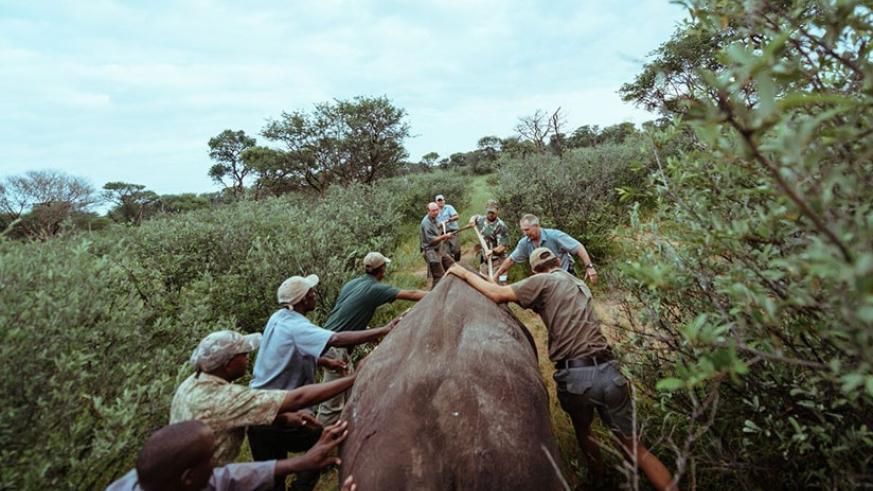A very big move is happening between Rwanda and Europe in a few days and it is as big as the package: Black rhinos. They would be boarded onto an aircraft to the Central-Eastern African country this Sunday in a historic translocation deal.
According to a report from the Rwanda Development Board, the move for the translocation of five critically endangered Black Rhinos, born and bred in Europe, to be released into the wild in Rwanda is part of an urgent and valuable opportunity to expand the range and protection of the rhino species in Africa.
Also, the RDB hopes to demonstrate how captive rhinos can help supplement and repopulate wild populations within secure landscapes.
Recently, the Akagera National Park, Rwanda’s iconic national park known to be home to many of these endangered species of rhinos, has begun receiving new rhino entrants as a way of helping it avert the extinction of the species of rhinos as a result of poaching activities to harvest their horns.

Eighteen endangered Eastern black rhinoceroses were, in 2017, also translocated and let out into the wild at Akagera from South Africa, with the same intent of increasing its population.
The practice of rhino poaching is no longer an attractive industry in Rwanda but in South Africa, an earlier ban on the poaching of the animal was lifted in 2017. Many believed the ban would not be such an effective decision because “there’s not been much demand for rhino horn traditionally in South Africa, so there is a question mark over just how much of an impact the ruling will have”.
However, the South African government in collaboration with their counterparts in Rwanda, translocated 18 Eastern black rhinoceroses in two rounds to the Park.
This new batch of black rhinos expected to make the 6,000km flight to Akagera National Park in Rwanda – the largest ever translocation of rhinos from Europe to Africa – will begin at the Safari Park Dvůr Králové (Czech Republic) from where all five animals have been gathered since November 2018.
This is historic as the park, which is a protected savannah habitat in Rwanda and contains excellent black rhino habitat, has undergone a remarkable transformation since African Parks assumed management in 2010 in partnership with the Rwanda Development Board.

“While their flight will depart on Sunday, June 23rd, their journey began years ago, with the incredible foresight and vision of the European Association of Zoos and Aquaria (EAZA) in helping to supplement wild populations in secure parks in Africa with genetically-robust individuals who have been successfully bred and cared for over the years by the EAZA Ex Situ Programme (EEP),” the RDB said.
This move is a welcome one for the country since the last time they saw any of those species was in 2007. In the 1970s, however, there were more than 50 black rhinos thriving in the Akagera National Park but their numbers declined under the pressure of wide-scale poaching until the last confirmed sighting of the species in 2007.
Fewer than 5,000 wild black rhinos and only 1,000 Eastern Black Rhinos remain in Africa and their future is severely threatened by poaching for the illegal demand for their horns.

In Africa, rhinos are the victims of ruthless poaching to supply Asian markets with their horns used for traditional medicine, as a party drug, and to boost male potency. (No scientific evidence exists for its efficacy.) In South Africa alone three rhinos are killed each day.
“The translocation of five rhinos from European zoos to Rwanda will further enhance the natural ecosystem in Akagera National Park. This partnership with our European friends is a testament to Rwanda’s commitment to conservation. Today, poaching is almost non-existent in our four national parks and we are confident that these rhinos will thrive in their natural habitat in Akagera. They are a positive addition to Akagera, a Park where tourists can now visit the African Big Five,” said Clare Akamanzi, Chief Executive Officer, RDB.










